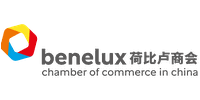It has been a major discussion that China transitioned into an economic slowdown phase for 2019 and the following years. This trend has already affected all industries, including new retail, IT, and internet businesses.
China's largest online platforms and new internet businesses, such as DIDI, JD.com, Zhihu.com, started layoffs to avoid the drop in business performance. Alibaba also stopped society recruitment. Under the pressure of an uncertain economic situation, the traditional model of full-time direct labor relationships between employees and enterprises loses its position, and enterprises search for new forms of employment. There is growing interest forward temporary staffing, short-term or project-based recruitment, and flexible working for certain groups of employees.
So the main question is how to turn economic challenges into new opportunities?
This is the new priority for every member of a HR team. In addition, a new tax policy brings reformation in salary management and overall employee relationships. So it gets more important to drive innovations in HR processes and implement smart solutions that can work efficiently in the new economy. Now it's time for HR teams to be a leader in companies' transformation. What are the best practices in flexible working and employment? What skill set must be developed for employment optimization in top enterprises?
Based on these questions, we invite HRDs in the new retail industry to explore the innovation of flexible working management from the HR perspective and to explore talent development and HRM processes.
Topics to be discussed:
· New definition of flexible working and employment. Risk management for employer under new tax policy.
· How to reduce costs through flexible employment in a new 'shared' economy?
· Flexible working and employment in the new economy: Trends & Advantages.
· Flexible working and employment: Best Practice, Case Study.

